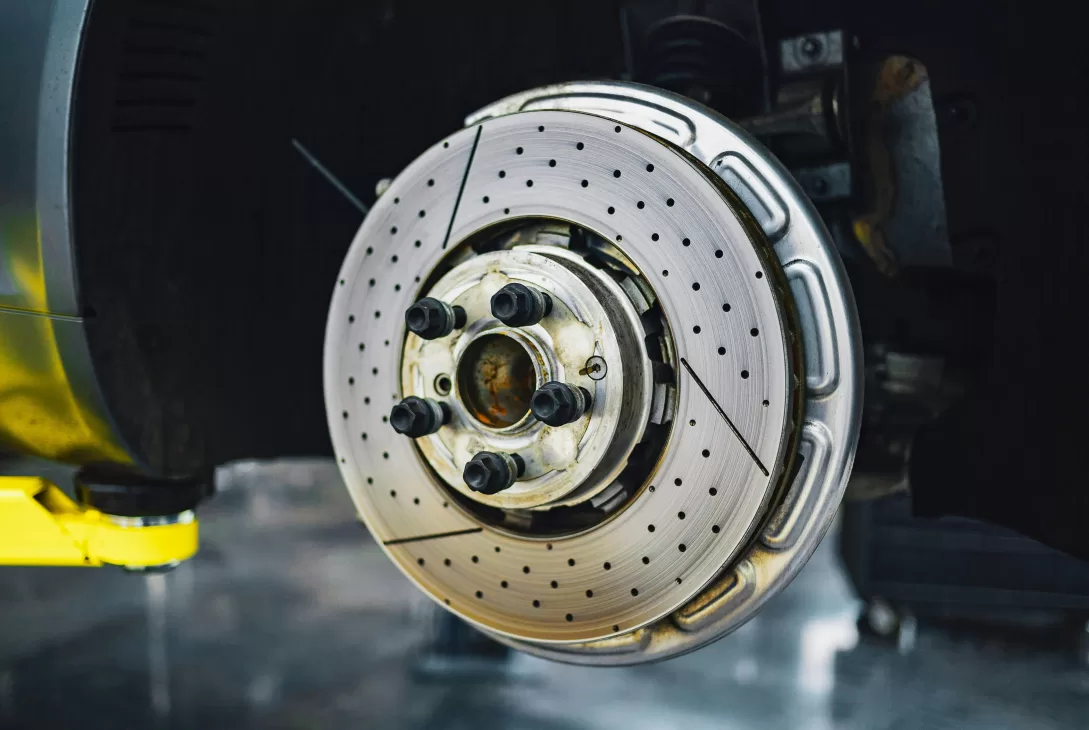Owning a Mercedes means embracing luxury and performance, but it also means taking the wheel of responsibility for maintenance. Your Mercedes brakes are the unsung heroes of every drive, ensuring safety and performance. In this guide, we’ll unlock the secrets to keeping your Mercedes brakes in top shape, covering everything from brake pads and discs to spotting issues and knowing when to call in the experts.
Routine Check-ups:
Regularly checking your Mercedes’ brakes is critical to catching potential problems early. Here’s what you need to do:
- Pad Thickness: Keep an eye on your brake pad thickness, aiming to replace them around the 3mm mark to maintain optimal stopping power.
- Disc Inspection: Look closely at your brake discs for signs of wear like grooves or discoloration, ensuring they’re in prime condition for every stop.
- Fluid Levels: Monitor your brake fluid levels to catch leaks or excessive wear on the brake system before they become a more significant issue.
Replacing Brake Pads:
When it’s time for new brake pads, follow these steps to keep your Mercedes performing at its best:
- Choose Genuine: Opt for genuine Mercedes-Benz brake pads to ensure compatibility and peak performance with your vehicle’s braking system.
- Precision Installation: Ensure your brake pads are installed correctly, with all components tightened to manufacturer specifications for optimal safety and performance.
- Bedding-In: After installing new pads, take the time to bed them in properly. Gradually apply the brakes to transfer friction material onto the discs, boosting performance and longevity.
Brake Disc Care:
Your brake discs play a crucial role in stopping power. Keep them in top shape with these tips:
- Smooth Braking: Avoid heavy or prolonged braking to prevent excessive heat buildup and premature disc wear.
- Keep Clean: Regularly clean your brake discs to remove brake dust, dirt, and debris affecting braking performance.
- Watch for Damage: Look for any signs of damage, like cracks or warping, and address them promptly to prevent further issues.
Knowing When to Seek Help:
While regular maintenance is crucial, there are times when professional assistance is needed. Here are some signs it’s time to call in the experts:
- Strange Noises: When you stop the car and hear unusual squealing or grinding sounds, it could indicate worn pads or damaged discs.
- Vibration or Pulsation: Feeling vibrations or pulsations when braking could signal warped discs or other brake system issues that require attention.
- Soft Brake Pedal: A spongy brake pedal may indicate air in the lines or a leak, needing immediate attention.
- Dashboard Warnings: Pay attention to any dashboard warning lights related to the brake system, as they could signal potential issues that require professional diagnosis and repair.
Maintaining your Mercedes brakes is essential for safety and performance. By following the guidelines and staying alert for signs of trouble, you can keep your Mercedes running smoothly for miles to come. And remember, if you encounter any concerning symptoms or need expert assistance, don’t hesitate to contact a certified Mercedes-Benz technician for help.







